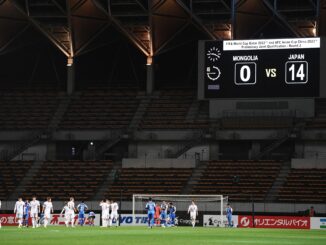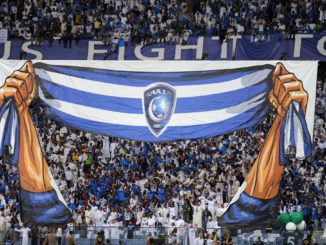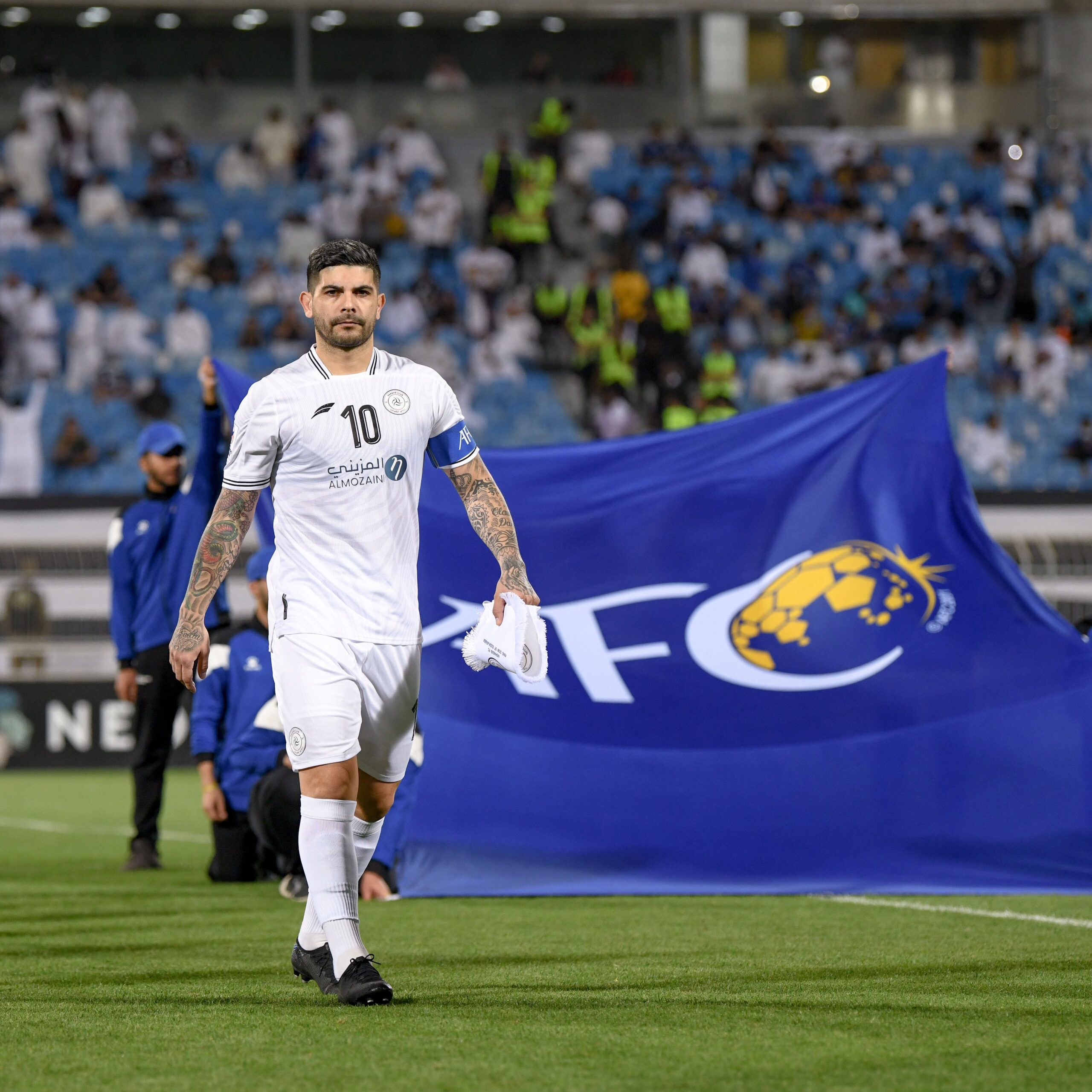
The AFC Champions League knockout stages in the West have finally arrived, after a gargantuan 10-month long wait since the group stage concluded back in May.
Football rarely stands still, yet looking back at the first part of 2022, when Australia’s hopes of qualifying for the World Cup looked dead in the water, and Cristiano Ronaldo was still scoring hat-tricks for Manchester United, it’s difficult to comprehend that the coming weeks’ knockout phase is at all connected to what occurred back then.
In the East, we already know one of the finalists, with Urawa Red Diamonds triumphing over Jeonbuk Hyundai Motors in August.
Having waited six months already to observe the conclusion in the West, we’ll have to wait a further three months for the resulting final; meaning this year’s AFC Champions League season will have stretched over 14 months by the time it concludes in May.
A stretched out schedule comes after a few years of logistical disturbance, in no small part due to COVID and a winter World Cup.
The drawn-out proceedings will, however, conveniently conclude just in time for the switch in calendar to an Autumn-Spring format, with next season’s 2023/24 AFC Champions League campaign expected to kick off this coming September.
While the AFC transitions between calendars, we also know this campaign will be the penultimate in its current expanded guise. It was only in 2021 that the AFC implemented their larger Champions League format, which saw the number of group stage teams rise from 32 to 40; yet for 2024/25 we’re back to a condensed 24-team elite tier, as part of their wider club competition reforms.
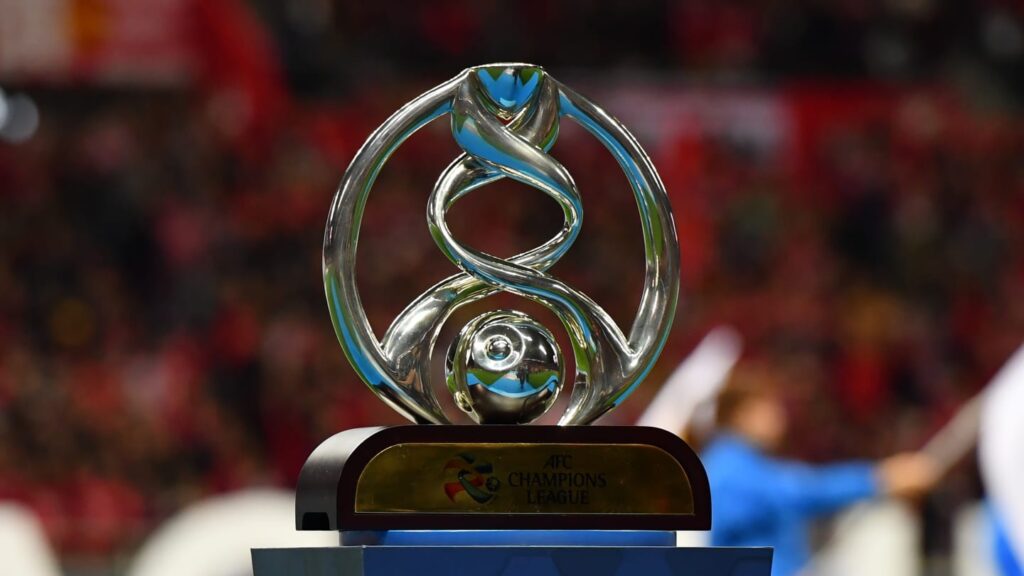
In relation to the new competition, this year’s hub style finals format – a hangover from the COVID bubbles of the pandemic – won’t be the last time we see it, with centralised formats set to be reintroduced for 2025.
Next week may offer a small glimpse into the future then, being the first real hub format played with no restrictions on away fans.
So, the common theme in Asian football, as ever, is change. Not just in the format, but in the squads heading to an all too familiar host destination in Qatar for this knockout phase.
With significant comings and goings across all the squads heading to Qatar, who including one side having been relegated in the meantime; the upcoming spectacle promises to be anything but predictable.
Club World Cup finalists Al Hilal enter as favourites
Fresh off their historic run to the Club World Cup final last week, a first for any previous Asian champion, Al Hilal return to the AFC Champions League, a title they aim to retain, having succeeded twice in the last three editions.
Keen on replicating the heroics shown in their thrilling defeat to Real Madrid last week, Al Hilal will seek to demonstrate their stature back in Asia, in spite of dwindling resources.
A transfer ban that has limited any incomings over the last two transfer windows, ironically at the growing peak of Saudi Arabian football spending, has clearly reduced the ACL holders’ flexibility at home and abroad.
Key injuries to Salman Al-Faraj and Yasser Al-Shahrani at the World Cup have further punctured their impact, all for a team that required a late realisation of form to salvage what threatened to be a less than ordinary domestic season last campaign.
While the lack of options has dented their armoury, in Ramon Diaz they have the perfect manager to retain defensive solidity while playing effective counterattacking football.
Embed from Getty ImagesSalem Al-Dawsari remains their key attacking outlet, while the sudden improved form of Moussa Marega, and the returning Luciano Vietto, who played on loan at Al-Shabab during the ACL group stages, couldn’t have been timed better.
While domestic form sees them trail the top of the Saudi table by eight points, Al-Hilal’s resolve and ability to rise to the occasion, especially on this stage can never be counted out. After last week’s feat in Morocco, few will tip against the Saudi giants in making their fourth ACL final in six seasons later this month.
If there was a close challenger though, on paper that’d come in the form of the runaway leaders in Qatar, Al Duhail, who’ll also have home field advantage to call on throughout the knockout phase.
Way back at the start of the tournament, Argentine coach Hernan Crespo had only just been appointed, and it showed, having to bounce back from a slow start to fly through to progression in emphatic fashion.
Much of that success came through the link up of attacking quartet – Edmilson Junior, Nam Tae-hee, Almoez Ali and Michael Olunga – the former in particular showcasing his abilities as one of the finest talents playing in Asian football right now.
Eight goals in six games, including a stunning hat-trick against Pakhtakor, underlined the immediate and potent threat Crespo’s side has when their Belgian winger is on song.
Injury concerns, however, have occupied much of their thoughts ever since. As we edge closer towards the knockout phase, Edmilson hasn’t started a match since August, while options in reserve are somewhat lacking compared to their last 16 peers.
Embed from Getty ImagesIt’s not just in attack where there are question marks either. In the group phase, Al Duhail conceded a staggering nine goals in six matches; two more than any other side to progress to the latter stages.
While the introduction of former Tottenham Hotspur defender Toby Alderweireld at the time provided higher quality on the ball, pace and positioning remained a persistent concern, especially on the counter.
In his place, Crespo calls on former Newcastle United defender Federico Fernandez, having only been recruited just weeks ahead of the Champions League latter stages.
How quickly he can bed down a relationship with centre back partner Bassam Al-Rawi, a player no doubt subdued by an disappointing World Cup with Qatar, could well dictate how far the Qatari league leaders can possibly go.
Al-Shabab head the outside picks
While Al Hilal and Al Duhail top the bill, there are a number of outside shouts available, especially in a tight tournament, played over the course of a week, in a neutral venue.
The most intriguing comes in the form of Al Hilal’s Riyadh neighbours Al Shabab, the current joint-leaders of the Saudi Pro League, and arguably the most eye-catching performers in the group stage.
While Marius Sumudica left at the start of the season, having navigated Al Shabab through to the continental latter stages, new Spanish coach Vincente Moreno has built on the success of his predecessors into the new league campaign.
The addition of Polish international Grzegorz Krychowiak alongside the evergreen metronome Ever Banega has established strength in the centre of midfield, while the additions of Santi Mina and Cristian Guanca have taken some of the pressure of leading man Carlos Junior.
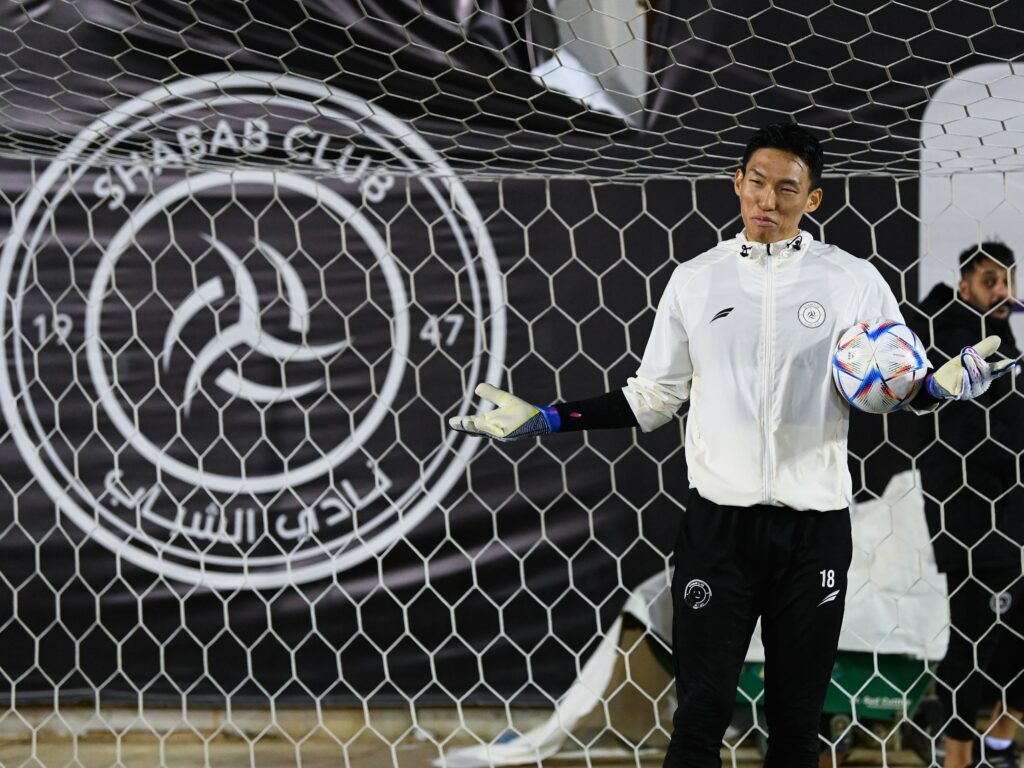
The purchase of South Korea number one Kim Seung-gyu looks the most telling acquisition, however. The goalkeeper, having kept nine clean sheets in 18 matches so far this season, has already grown into a reassuring presence within a side that picked up maximum points domestically in their last four matches to extend their lead at the top to three points.
The difficulty for Shabab looks to be the ACL foreign quota. Only three foreigners are permissible on the field at any given time, in addition to Kim as the nominal AFC player, meaning Moreno will have to choose between attacking verve and defensive stability when choosing his final foreign player selection.
Fawaz Al-Sagour and Hassan Al-Tambakti head the domestic options, after impressing during the group phase and recent World Cup respectively, yet the attacking options look a little hit and hope given the sporadic form of Hatem Bahebri, young frustration Turki Al-Ammar and veteran enigma Fahad Al-Muwallad.
While Shabab are on a hot streak domestically, the team they wheel out in Qatar may in the end look an entirely different prospect.
It’s an unpredictable tale that’s shared by Nasaf Qarshi, again impressive performers in the group stage, but somewhat an untested side ahead of the knockouts, having last played competitive football back in November.
The bedrock of Ruzykul Berdyev’s team has been youth, and with their first AFC Champions League knockout stage ahead of them, they’ve been able to keep hold of the key components of that; with Alibek Davronov, Akmal Mozgovoy and Khusayin Norchaev all committing to the club for another season.
What they lacked last year, however, was guile in attacking positions, a potential factor behind their regression in the Uzbek title race heading into the final few matchdays.
Embed from Getty ImagesWith the acquisition of one the league’s better playmakers last term in Javokhir Sidikov from Kokand, alongside Muhammadjon Rahimov from Istiklol and Azizbek Amanov from Esteghlal in the recently closed transfer window, there’s no doubting Nasaf look a better all round team on paper coming into this year.
The lack of competitive gametime, despite an intense eight-match preparatory camp in Turkey this last month, may come back to bite them. But if anyone is going to pull off an underdog shock, last season’s AFC Cup winners, may well be that unsuspecting bolter from the pack.
Elsewhere, the return to form of Shabab Al-Ahli Dubai looks to have coincided perfectly withe club’s return to the ACL knockout stages.
The Emirati club, whilst underwhelming for much of the group phase last year, were able to turn it around late in the day, including the most striking of results, an emphatic 8-2 victory over Qatari side Al Gharafa.
Those types of wins were unfortunately too infrequent, personified by the architect of that victory Omar Abulrahman, who exited the club swiftly over the summer, alongside a number of colleagues who promised more than they ultimately delivered.
The arrival of new coach Leonardo Jardim in place of Mahdi Ali has instilled a more productive collective, a team that remains unbeaten in 2023, atop of the domestic league table.
While on paper their squad hasn’t been significantly improved since the new coach’s arrival, the qualities of Syrian striker Omar Khribin, Argentine creator Federico Cartabia and young flyer Hareb Abdullah, ensure they retain a threat to any team they’ll face in Qatar.
Embed from Getty ImagesThe proposition of Al Hilal in the Round of 16 may well be the toughest assignment in the draw if they are to replicate their run to the Final back in 2015; a run that included victory over the same Riyadh opposition in the semis.
Jardim himself was sacked by Al Hilal early last year, having failed to keep pace domestically, so a week after the pinnacle of the club’s recent history – the Portuguese coach would be thrilled if he could bring his former employer down to an earth with a heavy bump.
The chasing pack look for a continental distraction amidst weak domestic form
While there’s a vast array of quality to consider over the course of the knockout phase, with a 10-month gap in mind, there remains a number of outfits struggling to recapture the type of form that got them to this position.
No more so than Al Rayyan, who enter the knockout phase languishing in relegation form, a mere three points above the bottom two in the Qatar Stars League.
Back in early May, while progression was sealed against Al-Hilal on the final day, Al Rayyan were in the end fortunate to even progress. The wizardry of Yacine Brahimi was a telling but isolated creative spark, Al Rayyan instead relied on a fortunate handout by an understrength Al Hilal side who had already guaranteed a knockout stage spot.
Ten months later, with their Algerian talisman Brahimi having flown the nest, the rebuild into the new campaign hasn’t exactly hit the heights set by the club’s hierarchy.
For now, Nicolas Cordova, praised for his success in the ACL, lives on borrowed time following a drab eighth position finish last term. The now infamous James Rodriguez fiasco aside, Rayyan have struggled to get the best out of anyone in red and black aside from their productive Ivorian striker Yohan Boli, who remains their key goalscoring outlet.
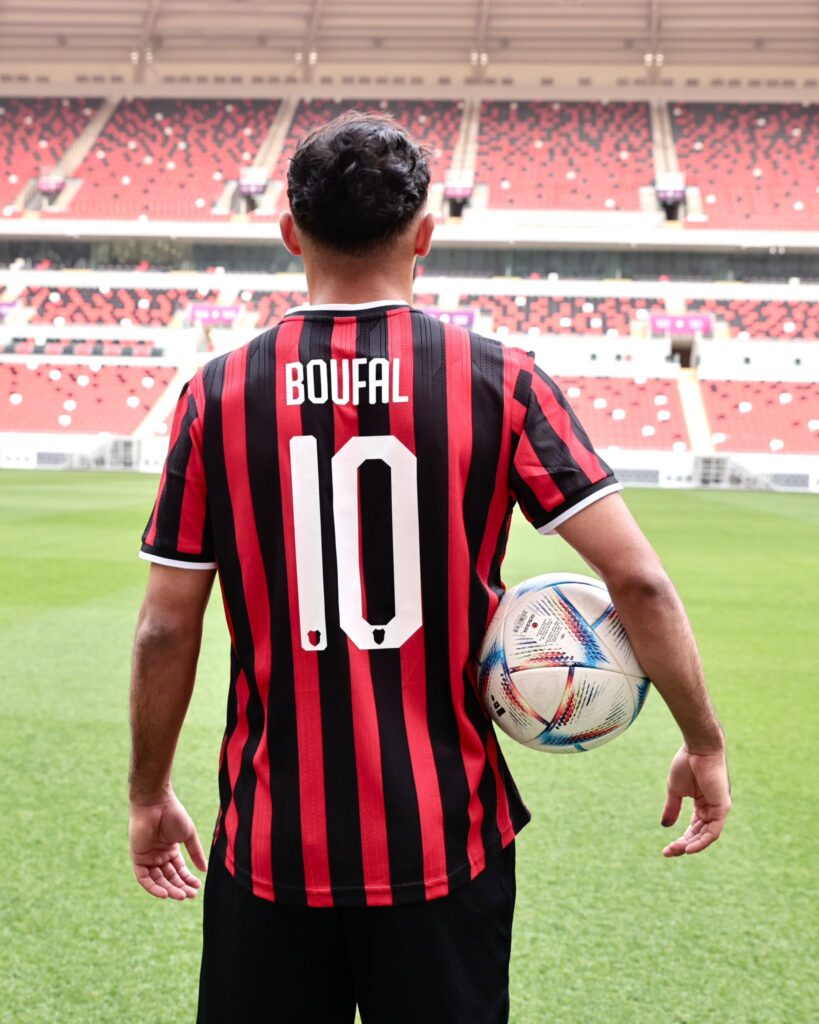
With their last roll of the dice, the acquisitions of Japanese international defender Shogo Taniguchi, Chilean midfielder Jeisson Vargas and Moroccan wide man Soufiane Boufal this January, suggest Rayyan’s squad at least has options to play with. Injury concerns for the latter, however, already looks to be imitating the false dawn that a certain Colombian produced less than a year ago.
A ray of hope then may come in the form of 20-year-old Tameem Mansour. The young striker was the goalscoring hero that got them to the ACL knockouts last year, and off the back of a historic Gulf Cup, where he emulated his Qatari legend father Mansour Muftah in scoring for the Maroon, his rising form could be the catalyst behind any renaissance for the club.
Iranian club Foolad are replicating the same type of struggles, yet it must be noted on a much smaller budget than their Qatari peers.
Under Team Melli legend Javed Nekounam, Foolad were able to grind their way through to the knockout phase of the tournament, but have since regressed to languish in mid-table obscurity, 15 points behind a potential ACL return for next season.
The difficulty for Foolad has always been in goalscoring positions. The style instilled by Nekounam has focussed on keeping things tight defensively and hitting on the counter, something that worked wonders in the ACL group stages, succeeding despite not scoring or conceding more than a goal in any given match.
The difficulty moving forward has been sustaining any of that brief but effective end product.
Ten months on from that success in Saudi Arabia, Foolad have lost all three of their ACL goalscorers from their ranks.
Embed from Getty ImagesWhile the goals were crucial, the absence of the all-round impact of veteran Brazilian Luciano Pereira and South African playmaker Ayanda Patosi in an attacking sense, and Malian colossus Moussa Coulibaly in a defensive one can’t be underestimated.
Foolad have only managed two goals in their last seven matches without them and can now rarely rely on the sort of defensive solidity they once built around.
Nekounam, a name once thought of as Carlos Queiroz’s successor as Team Melli boss, will instead turn to the winter acquisitions of Spanish midfielder Roberto Torres and Japanese journeyman Yukiya Sugita ahead of a knockout stage, few Iranian fans will have much hope for.
The caveat to that argument, lies in their opponents, Saudi club Al Faisaly, a team that quite distinctly illustrate the gap in time between group and knockout phases.
The Al Majma’ah-based club are currently playing catch up in a push to win promotion back to the top flight, following their relegation on the final day of last season.
Like Foolad, Al Faisaly didn’t offer much excitement in their progression to this stage, compensated by an easy group stage draw, home favour, and the potent form of their overseas talent. Having returned to the Champions League fold, however, they find themselves in an entirely different position.
Key talents have since been released; Australian Martin Boyle has returned to Scotland, while Hicham Faik and Julio Tavares have moved elsewhere in the kingdom.
Embed from Getty ImagesThe recent additions of Josip Vukovic from Hajduk Split, Mariano Vazquez from mid-table Colombia, alongside the adequate looking goalscoring pedigree of Maoud Juma, it’s difficult to compare this squad against anyone else descending on Qatar.
The one meagre sign of hope may come with the return of the coach that led them to these rounds last year.
While Greek coach Marinos Ouzounidis was released of his duties upon domestic relegation, the limp promotion chase of former Turkmenistan coach Ante Mise was ultimately seen as a step down, forcing the Saudi club to go back to Ouzounidis in the last month.
Whatever impact he had last year in their surprising run to the ACL knockouts, will once again be needed if their time in Qatar is to be extended.
Seven matches then, over the course of seven days lie ahead for the very best in the West of Asia to compete for continental glory.
The format has long be scrutinised, debated and criticised, but there is finally light at the end of a very long tunnel.
All that needs answering now is who can conjure success out of one of the more drawn out and largely forgettable AFC Champions League campaigns in recent memory and make it to May’s final with Urawa Red Diamonds.
Photo: twitter/AlShabab_EN
Listen to the latest The Asian Game Podcast as we go In Conversation With… Mitch Langerak


